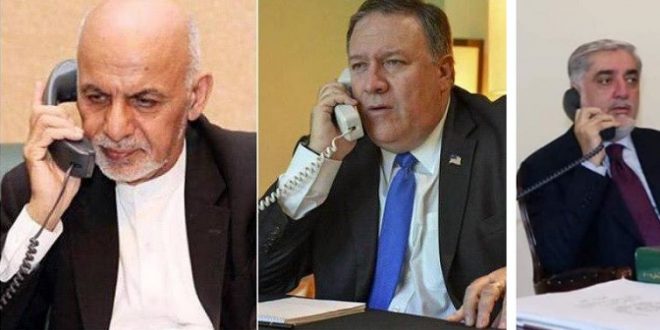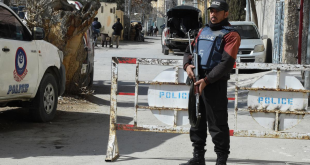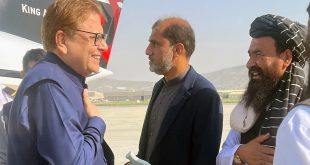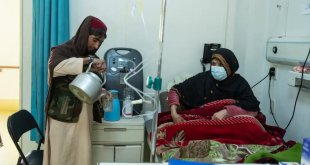Although the Taliban has close ties with al-Qaeda terrorist network, U.S. envoy Khalilzad is signaling green light on prospects of peace negotiations
AT News
KABUL: Top Afghan and U.S. officials on Tuesday discussed the structure of the Afghan peace process in a bid to hatch and define the roadmap of the future of intra-Afghan talks.
President Ghani of Afghanistan and the Secretary of State of the U.S. Mike Pompeo in a video conference talked about an array of issues pertaining to the Afghan peace process.
The two sides discussed the release of Taliban prisoners, venue for the intra-Afghan negotiations, underscoring the need to keep the people informed of the developments before and during the negotiations as they unfold.
In the conference, Dr. Abdullah Abdullah talked over the steps taken by the High Council for National Reconciliation and process, finalizing the selection of its members. It was agreed that both sides should continue to work on the details of the peace process, emphasizing on the mechanism for a framework of the existing reduction in violence.
The US Secretary of State said that the main goal of the United States is a united, independent, democratic and stable Afghanistan within the framework of the continued long-term and strategic relations between the two countries, and we will work with the Afghan government to achieve that.
This is as the U.S. special envoy to Afghanistan Zalmay Khalilzad has expressed optimism that the Taliban and Afghan government will begin peace talks, adding that U.S. troops could be pulled out ahead of schedule if all goes well.
Speaking to reporters in Washington, Khalilzad said on Tuesday that there has been a lot of progress as the Afghan government speeds up the release of prisoners, which is expected to lead to intra-Afghan negotiations.
“We are in a good place,” Khalilzad said, adding that levels of violence in Afghanistan have remained relatively low since May’s Eid al-Fitr cease-fire. “We are optimistic that finally we’re moving forward to the start of the intra-Afghan negotiations”. Khalilzad did not set a date and cautioned that “still more needs to be done” on freeing prisoners.
Khalilzad’s comments come after a recent report to the UN Security Council that uncovered Taliban’s close ties with Al-Qaeda and that both groups were in regular consultations over the negotiations with the United States.
Khalilzad, however, said the Taliban will sever ties with al-Qaeda. “Based on the peace agreement, Taliban will never host terrorist groups and will cut its ties with al-Qaeda. “The Taliban regularly consulted with Al-Qaeda during negotiations with the United States and offered guarantees that it would honor their historical ties,” independent U.N. sanctions monitors said in the report. Khalilzad said it largely covered a period before the February deal.
“There is progress, but we will continue to monitor those activities very closely,” he said of Taliban ties with Al-Qaeda, adding that if the Taliban fails to keep its promises, Washington could reconsider its own.
The United States and the Taliban signed an agreement in February aimed at ending the longest military action in U.S. history. The deal lays out a timetable for the withdrawal of U.S. troops from Afghanistan in return for security commitments from the Taliban. It also stipulates that Kabul must free 5,000 Taliban prisoners, while the militants are to release 1,000 captives. As of last week, Afghan authorities had released 1,100 Taliban militants since early April; the militant group had freed 245 members of security forces, civil servants, and other people it had been holding. Under the February agreement, the United States will pull troops out of Afghanistan by mid-2021 in exchange for the insurgents’ commitments to keep out Al-Qaeda and other foreign extremists. US officials have said that troops already are returning home and the withdrawal is ahead of schedule. The United States still has about 12,000 troops in Afghanistan, and Washington pays about $4 billion a year to maintain the Afghan military. The deal committed the United States to reduce its military footprint in Afghanistan to 8,600 troops by mid-July.
 Afghanistan Times
Afghanistan Times




